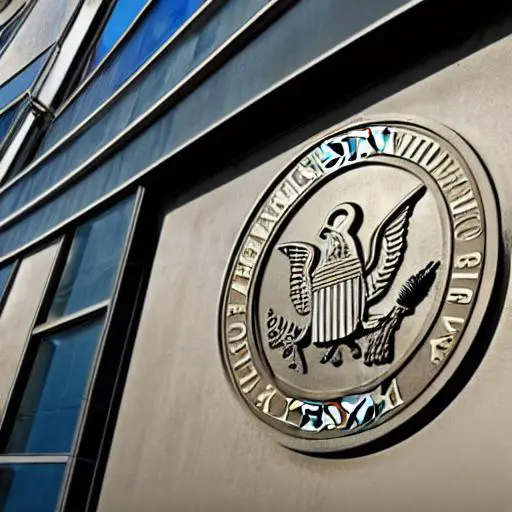The Senate Banking Committee held a hearing on cryptocurrencies on Valentine’s Day with the title “Crypto Crash: Why Financial System Safeguards are Needed for Digital Assets,” raising the stakes for the industry to unprecedented levels. The hot topics of the week were discussed at this hearing, including the regulation of stablecoins, consumer protection, banking for the cryptocurrency industry, the need for a self-regulatory organisation, and how the Securities and Exchange Commission (SEC) and Commodity Futures Trading Commission (CFTC) should work together to regulate digital assets.
Lee Reiners, the policy director of Duke University’s Financial Economics Center, testified and offered a thorough new regulatory strategy. Overall, the goal of the committee, which is co-chaired by Tim Scott (R-S.C.) and Sherod Brown (D-Ohio), is to begin developing a consensus regulatory framework for cryptocurrencies. They listened to testimony from Vanderbilt Law School professor Yesha Yadav and Georgetown University professor Linda Jeng, J.D., who also serves as the Crypto Council for Innovation’s chief global regulatory officer.
In his testimony, Reiners said that Congress should make it clear that, in addition to formal crypto firms, the SEC also has the jurisdiction to create regulations governing DeFi applications. Jeng and Yadav advocated in favour of innovation, financial inclusion, user diversity, and other nations like China taking the lead. Reiners defended consumer rights, financial security, and the question of whether this is actually an asset class or just a form of gambling. The Committee made it very apparent that Gary Gensler was missing and that he needed to show up before September because it was simply too late.
The stakes for the cryptocurrency sector have never been higher as lawmakers debate whether or how to permit innovation to flourish in established economic strongholds like New York and San Francisco. The choices made today on Capitol Hill may also have an effect on the dollar’s continued dominance in the world.
SEC Vs. CFTC
Reiners suggested that the SEC should be in charge, pointing out that the CFTC only controls commodity futures and not commodity spot markets. Because of that structure, there is currently no federal regulation of cryptocurrency exchanges in the United States. This is specifically because lawmakers seek to bolster the federal level regulation of cryptocurrency exchanges. This would increase clarity and lessen the possibility that cryptocurrency businesses would be penalised for services they were unable to manage, as happened recently with Kraken and Ethereum staking.
According to a statement he issued ahead of the hearing, Reiners contends that the best, and most feasible, path forward is for Congress to form out crypto from the concept of a commodity in the Commodity Exchange Act and recognising cryptocurrencies as securities under a special definition to the securities laws. In short, Reiners thinks the SEC should be the main authority responsible for overseeing cryptocurrency exchanges.
He continued by arguing that a cryptocurrency exchange may be subject to a special resolution administered by the Securities Investor Protection Corporation (SIPC) if it provides custody services for customer assets rather than mandating the use of a qualified custodian. This would protect customers against losses of up to $500,000 in the event that the exchange company goes out of business. For instance, this might have provided some of the FTX bankruptcy victims with protection. Even if these choices are significant, they can be overshadowed by how politicians might change their stance on decentralised crypto services and technologies.
Regulating Defi
DeFI is subtly but significantly brought up in today’s hearing. According to Reiners, “a number of businesses have created online user interfaces that let users access DeFi protocols. Broker-dealer registration should be required for these businesses. Numerous businesses and initiatives, including Aave and Compound, would be impacted by this.
According to Reiners, DeFi projects that are solely powered by blockchain-based smart contracts present less of a risk because they are independent from third parties’ efforts and “quite few people have the technological capacity to access them directly.” These initiatives also have “little tie-in to real-world assets” because they are still so experimental. The SEC might, according to Reiners, “start by requiring independent code audits and IT security testing of DeFi protocols,” given that the most significant dangers connected with DeFi right now are code flaws that could entice unethical hackers. Considering code audits as a component of the standard compliance procedure would be a significant step forward for a traditional regulator like the SEC.
Stablecoins
Additionally, Reiners’ proposal would give the SEC control over stablecoins. Roger Marshall and Elizabeth Warren are likely to concur with him. The rigorous requirement that all stablecoin reserves be stored in cash or U.S. dollars will be imposed by regulators. Treasury securities if lawmakers follow the advice of the law professors. When the cryptocurrency exchange Paxos was recently told to stop issuing the stablecoin BUSD, for instance, this was not the case.
Additionally, stablecoin issuers would be subject to regular audits, disclosures, and maybe even bank laws. Congress might simply direct the CFTC and SEC to engage in joint rulemaking and share enforcement authority in the case of stablecoins rather than deciding whether they are commodities or securities. There is precedent for this because in 2010, the two agencies collaborated to administer Title VII of the Dodd-Frank Act, which dealt with the regulation of derivatives. Congress might authorise the SEC to regulate stablecoins like money market mutual funds, with rigorous guidelines requiring that stablecoin reserves be maintained in cash and Treasury securities, rather than imposing them on the banking system.
All things considered, this hearing differs from past hearings because the Biden administration is putting more pressure on Congress to ultimately make a decision. If Congress does respond to that pressure, lawmakers will probably enact stablecoin restrictions as their first action. That would be the course of action that the legislature has taken most recently. Whatever happens next, these choices will undoubtedly have a long-term effect on the nation’s economic development. On days like today, the future of digital assets in North America is being decided.








